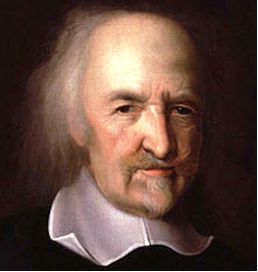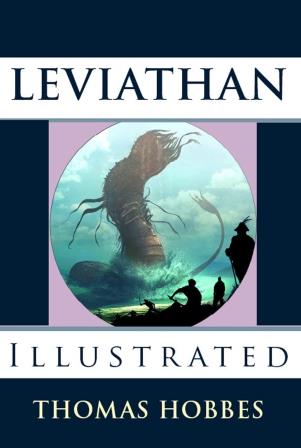More Search Results...

Thomas Hobbes of Malmesbury (5 April 1588 – 4 December 1679), in some older texts Thomas Hobbs of Malmsbury, was an English philosopher, best known today for his work on political philosophy. His 1651 book Leviathan established the foundation for most of Western political philosophy from the perspective of social contract theory.
Hobbes was a champion of absolutism for the sovereign, but he also developed some of the fundamentals of European liberal thought: the right of the individual; the natural equality of all men; the artificial character of the political order (which led to the later distinction between civil society and the state); the view that all legitimate political power must be “representative” and based on the consent of the people; and a liberal interpretation of law which leaves people free to do whatever the law does not explicitly forbid.
He was one of the founders of modern political philosophy. His understanding of humans as being matter and motion, obeying the same physical laws as other matter and motion, remains influential; and his account of human nature as self-interested cooperation, and of political communities as being based upon a “social contract” remains one of the major topics of political philosophy.
In addition to political philosophy, Hobbes also contributed to a diverse array of other fields, including history, geometry, the physics of gases, theology, ethics, and general philosophy.
Leviathan
In Leviathan, Hobbes set out his doctrine of the foundation of states and legitimate governments – originating social contract theory. Leviathan was written during the English Civil War; much of the book is occupied with demonstrating the necessity of a strong central authority to avoid the evil of discord and civil war. Beginning from a mechanistic understanding of human beings and the passions, Hobbes postulates what life would be like without government, a condition which he calls the state of nature. In that state, each person would have a right, or license, to everything in the world. This, Hobbes argues, would lead to a "war of all against all" (bellum omnium contra omnes).
The description conains what has been called one of the best known passages in English philosophy, which describes the natural state mankind would be in, were it not for political community: In such condition, there is no place for industry; because the fruit thereof is uncertain: and consequently no culture of the earth.
More info →
































